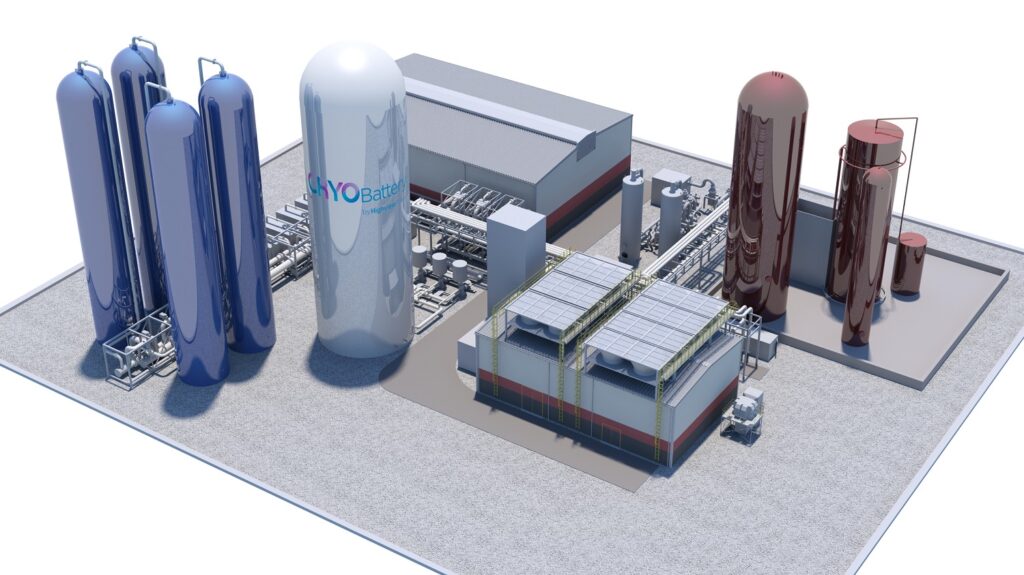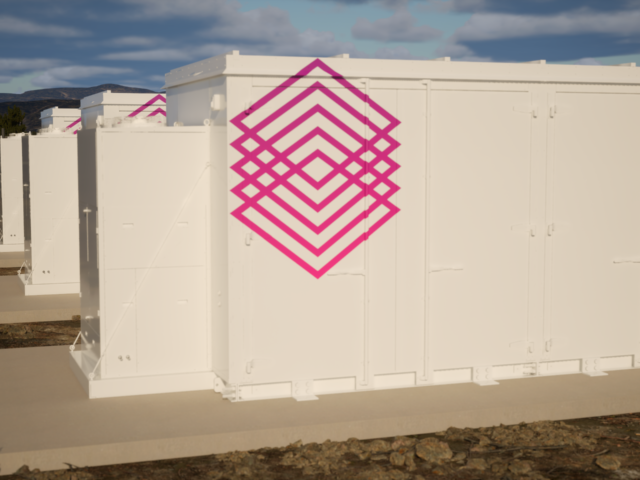Powering the Grid of the Future with Energy Storage
What is energy storage?
Energy storage systems convert electrical energy from a power network into a form in which it can be stored. Storage can be performed in different ways and for varying amounts of time. It is then converted back to electrical energy and deployed for use.
Energy storage has a critical role to play in the transition to a 100% clean energy future. Renewable energy, like all energy, is variable — so pairing solar and wind systems with energy storage adds additional resilience to your energy system.
Types of energy storage technologies
We are well-versed in a variety of energy storage products for a wide range of applications, based on location and the required duration for which the energy needs to be stored. Grid-scale energy storage utilizes a wide variety of technologies that address different applications.
Lithium-ion batteries:
One of the fastest-growing segments of the energy storage market is lithium-ion batteries. Batteries are electrochemical storage solutions, which include advanced chemistry batteries, flow batteries, and capacitors.
Lithium-ion batteries were first developed in the 1970s and became commercially viable in the 1990s. They were first used in electronics, like a home laptop or a cell phone. Companies then developed larger cells for use in electric vehicles, since then they have been widely deployed as grid-scale energy-storage applications.
While lithium-ion batteries supply 99 percent of new storage capacity today, they offer relatively short durations for storage (generally up to 4 hours), and can get very expensive if the required discharge duration is stretched to many hours.
Long-duration energy storage:
Thermal storage is a promising new long-duration energy storage technology with many uses, similar to pumped hydro. This emerging technology captures heat and/or cold air to create energy on-demand or offset energy needs. The most common occurrence of this technology is liquid air energy storage or cryogenic energy storage. Instead of storing energy electrochemically, like a battery, this technology stores energy as liquid air, which is comprised mostly of nitrogen, like the earth’s atmosphere. Liquid air storage shares many attractive characteristics with pumped hydro, and can provide similar grid services without the geographic constraints inherent in pumped hydro applications. These systems provide highly-scalable and long-duration solutions.

Pumped hydroelectric energy storage:
Pumped-storage hydroelectricity, or pumped hydroelectric energy storage, stores energy in the form of the gravitational potential energy of water pumped from a lower elevation reservoir to a higher elevation. Water is pumped from the lower reservoir(s) to higher reservoir(s) during times of inexpensive electricity and then allowed to fall, spinning a turbine or series of turbines, when the cost of electricity is high.
The first use of pumped storage was in 1907 in Switzerland. The first use of pumped storage in the United States was in 1930 using a large reservoir located near New Milford, Connecticut. The technology has evolved and improved over time as reversible hydroelectric turbines have developed and been improved such that the turbines could operate as both electricity generators as well as electric motor driven pumps.
Read about other emerging technologies in the long duration storage market.
Partnering energy storage technology with renewable energy development
Energy storage is rapidly evolving and revolutionizing the electric system. Storage is the link to a 100% clean energy grid due to its ability to store energy from intermittent-generation resources, like solar and wind, and subsequently discharge it when it is needed.
Behind-the-meter batteries can provide residential, commercial, and industrial customers with a continuous supply of energy in the face of any planned or unplanned power outages. The same is true for in-front-of-the-meter applications for utilities. Energy storage devices save money by reducing peak load prices, ensuring backup power, or providing revenue from providing ancillary services such as frequency regulation.
Along with the prices of solar, energy storage prices have fallen drastically over the past few years, making grid-scale deployment increasingly viable. Because all energy, including solar, is intermittently generated, pairing a solar array with the appropriate energy storage system can allow for the deployment of clean energy up to 24 hours a day, 7 days a week.
Challenges and opportunities for energy storage development
Energy storage is still a very young industry, and there are roadblocks to wide-scale storage deployment, such as the perception that batteries are too expensive, not standard, and do not last long enough. However, the reality is that energy storage costs have dropped rapidly, and new technologies such as thermal storage have long life spans.
While costs drop, manufacturers have been designing early storage products under diverse technical requirements reflecting specific-use cases.
Since distributed energy storage is a relatively new product, and historical-use data does not yet exist, customers may need guidance to understand the value of investing in these new systems.
We match energy storage solutions to solar systems to maximize our customers’ clean energy investments.
Energy storage systems offer numerous applications that provide benefits to our customers. These systems can maximize a solar installation’s value, provide energy resiliency, improve energy efficiency, enable demand response, and improve time-of-use-shift management.
As states realign renewable energy incentives, phasing out feed-in tariffs and net-metering, energy storage systems can maximize a solar installation’s value, as it can provide dispatchable around-the-clock energy and can open up new revenue streams for our investor partners and customers.
Battery energy storage can also now participate in the wholesale energy market. In September 2020, FERC adopted rules allowing energy storage participation, and regional grid operators are forming rules for future integration.
ISO-NE recently published guidelines for energy storage participation as dispatchable resources. The NYISO is also forming rules for energy storage wholesale market participation.
We help our clients navigate wholesale energy storage markets and find the right technology to secure additional energy storage revenue streams.
Current Encore energy storage projects:
Nava Storage
Nava Storage is an energy storage project Encore is building in Royalton, VT with a power capacity of 4.9MW and a storage capacity of 19.8MWh. This battery energy storage system (BESS) is contracted to Green Mountain Power (GMP). The energy storage services provided to GMP will reduce their exposure to peak demand events within the…
South Street Storage
South Street Storage is a Battery Energy Storage System (BESS) under development by Encore Renewable Energy located next to the South Street Solar array in Middlebury, VT. It has a power capacity of 2MW and an energy capacity of 8MWh. Once complete, it will provide energy management services to Green Mountain Power (GMP) which will…









 The team at Encore Renewable Energy® is proud to be certified as a B Corp, joining over 3,500 other businesses worldwide who also share a commitment to social and environmental performance, accountability and transparency.
The team at Encore Renewable Energy® is proud to be certified as a B Corp, joining over 3,500 other businesses worldwide who also share a commitment to social and environmental performance, accountability and transparency.